Universal Soldier

Album / Albumi: Canzoni come costume, Canzoni come civiltà
Il soldato universale
(continua)
(continua)
inviata da giorgio 14/3/2010 - 19:42
Ho continuato la mia strada

sn la nipote di Gregorio Giordano...a mio zio TI VORRO SEMPRE TANTO BN ,ogni volta che ricorderò la canzone (ho continuato la mia strada)penserò a te.Un bacione da quaggiù...
14/3/2010 - 19:14
Stop the War

SUGAR BLUE (interview) on Stop he War:
"I think the only thing we achieve... through war.. is death!
War destroys hope. War destroys everything that we value, everything that we built. And it takes that thing that none of us can give - life!
And there has got to be another way. It's insane to continue doing the
same things and expecting a better result!"
“Stop the War,” a funky blues that deftly mixes snippets of famous speeches and news reports with its plea... HYPERBOLIUM
"...his vocal and songwriting styles recall the soul and funk protest anthems of War or Sly & the Family Stone. He writes from experience, having served in Vietnam between 1970 and 1973." - CHICAGO MAGAZINE
"I think the only thing we achieve... through war.. is death!
War destroys hope. War destroys everything that we value, everything that we built. And it takes that thing that none of us can give - life!
And there has got to be another way. It's insane to continue doing the
same things and expecting a better result!"
“Stop the War,” a funky blues that deftly mixes snippets of famous speeches and news reports with its plea... HYPERBOLIUM
"...his vocal and songwriting styles recall the soul and funk protest anthems of War or Sly & the Family Stone. He writes from experience, having served in Vietnam between 1970 and 1973." - CHICAGO MAGAZINE
They call it war I call it murder , murder in the first degree
(continua)
(continua)
inviata da sailon8 14/3/2010 - 18:14
Todo cambia

che canzone fantastica.... complimenti per la traduzione!
fa sognare...
fa sognare...
14/3/2010 - 11:18
Diari d'una guerra
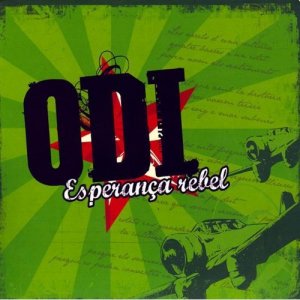
[2008]
Album: Esperança Rebel
Album: Esperança Rebel
Mirant al sol i amb la mà dreta ens van prohibir
(continua)
(continua)
inviata da giorgio 14/3/2010 - 09:34
Franz è il mio nome
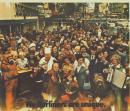
Version française – MON NOM EST FRANZ - Marco Valdo M.I. – 2010
Chanson italienne – Franz è il mio nome – Edoardo Bennato - 1976
Chanson italienne – Franz è il mio nome – Edoardo Bennato - 1976
MON NOM EST FRANZ
(continua)
(continua)
inviata da Marco Valdo M.I. 14/3/2010 - 09:32
L'estaca
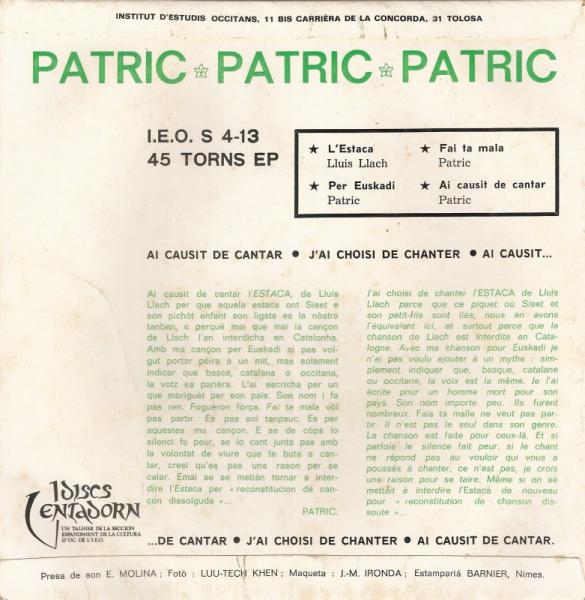
OCCITANO 3 [ Patric, 1972 ]
OCCITAN 3 [ Patric, 1972 ]
Pubblicata in vinile nel 1972 (Ventadorn EP IEOS 4.13) in un EP contenente L'estaca, Per Euzkadi, Fai ta mala e Ai causit de cantar. In ordine di tempo, si tratta della prima versione in assoluto de L'estaca in una lingua diversa dal catalano. [RV]
Da/d'après Open Folk Forum.
Patric est originaire de Mèze, dans l'Hérault, c'est donc l'orthographe et la prononciation de l'occitan tel qu'il est parlé dans la région de Montpellier qui est utilisé ici. Il est le créateur de la célèbre chanson "Occitània" et il a repris (entre autres) le "Se Canta", hymne occitan et la "Copa Santa" de Frédéric Mistral, mais en occitan, pas en provençal. (Le provençal est une langue romane de la famille des langues d'oc...)
“El primer cop que vaig sentir ‘L’estaca’ de Lluís Llach va ser en un poblet a prop de Barcelona, a l’època en què estava prohibida.... (continua)
OCCITAN 3 [ Patric, 1972 ]
Pubblicata in vinile nel 1972 (Ventadorn EP IEOS 4.13) in un EP contenente L'estaca, Per Euzkadi, Fai ta mala e Ai causit de cantar. In ordine di tempo, si tratta della prima versione in assoluto de L'estaca in una lingua diversa dal catalano. [RV]
Da/d'après Open Folk Forum.
Patric est originaire de Mèze, dans l'Hérault, c'est donc l'orthographe et la prononciation de l'occitan tel qu'il est parlé dans la région de Montpellier qui est utilisé ici. Il est le créateur de la célèbre chanson "Occitània" et il a repris (entre autres) le "Se Canta", hymne occitan et la "Copa Santa" de Frédéric Mistral, mais en occitan, pas en provençal. (Le provençal est une langue romane de la famille des langues d'oc...)
“El primer cop que vaig sentir ‘L’estaca’ de Lluís Llach va ser en un poblet a prop de Barcelona, a l’època en què estava prohibida.... (continua)
L'ESTACA
(continua)
(continua)
inviata da JF Blanc 14/3/2010 - 00:37
That's About The Only Thing that Governments Have Done

[2005]
Lyrics by Ryan Harvey
Music: Sung to the tune of "The Biggest Thing that Man has Ever Done" by Woody Guthrie
Album: Love and Fear
Lyrics by Ryan Harvey
Music: Sung to the tune of "The Biggest Thing that Man has Ever Done" by Woody Guthrie
Album: Love and Fear
I horded all the fruits and all the vegetables and grains
(continua)
(continua)
inviata da giorgio 13/3/2010 - 09:27
The Ballad Of The Hudson Valley Rent Strikes
[2005]
List of incidents of civil unrest in the United States
Album: Love and Fear
A story from A People's History of the U.S. by Howard Zinn http://en.wikipedia.org/wiki/Howard_Zinn
List of incidents of civil unrest in the United States
Album: Love and Fear
A story from A People's History of the U.S. by Howard Zinn http://en.wikipedia.org/wiki/Howard_Zinn
It was the fall of 1839, the place was New York State
(continua)
(continua)
inviata da giorgio 13/3/2010 - 09:24
La Mouche au bras

La Mouche au bras
La Mouche au bras – Marco Valdo M.I. – 2010
Cycle du Cahier ligné – 97
La Mouche au bras est la nonante-septième chanson du Cycle du Cahier ligné, constitué d'éléments tirés du Quaderno a Cancelli de Carlo Levi.
La mouche au bras, la mouche au bras... Quel titre encore une fois ! , dit Lucien l'âne en se grattant le museau sur le tronc d'un saule têtard. La mouche au bras, qu'est-ce que çà veut dire, cette fois ? Où as-tu pêché un titre pareil ?
Ne t'énerve pas, mon ami Lucien l'âne impatient. Je m'en vais t'expliquer tout cela et pas plus tard que maintenant. Tu connais l'origine de ces canzones, la carrière où je m'en vais tirer les pierres brutes de cette construction:la traduction que j'ai faite du Quaderno a cancelli; c'est une sorte de roman, mais un roman paradoxal, où tout ce qui est écrit, dit, se passe à l'intérieur des pensées d'un homme : le peintre-écrivain... (continua)
La Mouche au bras – Marco Valdo M.I. – 2010
Cycle du Cahier ligné – 97
La Mouche au bras est la nonante-septième chanson du Cycle du Cahier ligné, constitué d'éléments tirés du Quaderno a Cancelli de Carlo Levi.
La mouche au bras, la mouche au bras... Quel titre encore une fois ! , dit Lucien l'âne en se grattant le museau sur le tronc d'un saule têtard. La mouche au bras, qu'est-ce que çà veut dire, cette fois ? Où as-tu pêché un titre pareil ?
Ne t'énerve pas, mon ami Lucien l'âne impatient. Je m'en vais t'expliquer tout cela et pas plus tard que maintenant. Tu connais l'origine de ces canzones, la carrière où je m'en vais tirer les pierres brutes de cette construction:la traduction que j'ai faite du Quaderno a cancelli; c'est une sorte de roman, mais un roman paradoxal, où tout ce qui est écrit, dit, se passe à l'intérieur des pensées d'un homme : le peintre-écrivain... (continua)
Fuir là-bas...
(continua)
(continua)
inviata da Marco Valdo M.I. 12/3/2010 - 20:37
Ballata per un eroe

Ancora per Corrado.
Anch'io rivisito il sito solo ora, e scrivo per confermare che ricordo vagamente la parola postino nella strofa dimenticata...ma son passati più di trent'anni!
Comunque, per restare sulle canzoni d'autore di grande suggestione, per musica e parole, segnalo "C'è tempo" di Ivano Fossati e "Le rose blu" di Vecchioni, quest'ultima scritta per il figlio in un momento difficile, forse in pericolo di vita. Provo a fornire due link su YouTube, avvertendo che, coi nostri ritmi di accesso al sito, questi link potrebbero non essere più attivi al momento della prossima visita. Eccoli comunque, e buon ascolto!
http://www.youtube.com/watch?v=ALqkzO_Mg4c
http://www.youtube.com/watch?v=vcL-3HEtxjI
Anch'io rivisito il sito solo ora, e scrivo per confermare che ricordo vagamente la parola postino nella strofa dimenticata...ma son passati più di trent'anni!
Comunque, per restare sulle canzoni d'autore di grande suggestione, per musica e parole, segnalo "C'è tempo" di Ivano Fossati e "Le rose blu" di Vecchioni, quest'ultima scritta per il figlio in un momento difficile, forse in pericolo di vita. Provo a fornire due link su YouTube, avvertendo che, coi nostri ritmi di accesso al sito, questi link potrebbero non essere più attivi al momento della prossima visita. Eccoli comunque, e buon ascolto!
http://www.youtube.com/watch?v=ALqkzO_Mg4c
http://www.youtube.com/watch?v=vcL-3HEtxjI
Gianni 12/3/2010 - 18:28
I Can't See New York

canzone scritta per l'11 settembre 2001
From here
(continua)
(continua)
inviata da miriam 12/3/2010 - 16:24
Percorsi:
11 settembre: terrorismo a New York
One World
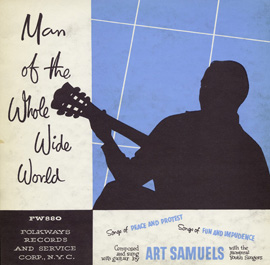
[1956]
Album “Man of the Whole Wide World”, Folkways Records
“An ideal is something to dream about, until it becomes a practical necessity for survival. Then it
calls, not for dreamers, but for planners. In this age of shrinking distances and long-range missiles,
even hard-headed ultra-nationalists must be beginning to realize that the choice is boiling down to co-existence or no-existence. Projected logically, then, it would seem that this could lead to a world
federation of states -- or, in the simpler term, one world.”
Album “Man of the Whole Wide World”, Folkways Records
“An ideal is something to dream about, until it becomes a practical necessity for survival. Then it
calls, not for dreamers, but for planners. In this age of shrinking distances and long-range missiles,
even hard-headed ultra-nationalists must be beginning to realize that the choice is boiling down to co-existence or no-existence. Projected logically, then, it would seem that this could lead to a world
federation of states -- or, in the simpler term, one world.”
You may talk of a world that’s divided,
(continua)
(continua)
inviata da Alessandro 11/3/2010 - 14:14
Soldier Boy

[1956]
Album “Man of the Whole Wide World”, Folkways Records
"The sharply altered mood and the minor key variation l’m sure, won't keep you from detecting the ghost of Mademoiselle from Armentières, the lusty World War One marching song. . . and I won't pretend that the resemblence is an accident. Perhaps, these songs had their place, once… perhaps they still bring beery-nosta1gia to some… but I submit that they, like the wars that spawned them, have had their day, and that anyone who believes otherwise is living in the hopped-up past of the pre-Hiroshima era."
Album “Man of the Whole Wide World”, Folkways Records
"The sharply altered mood and the minor key variation l’m sure, won't keep you from detecting the ghost of Mademoiselle from Armentières, the lusty World War One marching song. . . and I won't pretend that the resemblence is an accident. Perhaps, these songs had their place, once… perhaps they still bring beery-nosta1gia to some… but I submit that they, like the wars that spawned them, have had their day, and that anyone who believes otherwise is living in the hopped-up past of the pre-Hiroshima era."
What’ll you do when you’re unemployed, Soldier Boy?
(continua)
(continua)
inviata da Alessandro 11/3/2010 - 14:13
Man of the Whole Wide World

[1956]
Album “Man of the Whole Wide World”, Folkways Records
“I wrote this one some four years back, but unlike some of my earlier songs, if you were to ask me today to sit down and write about the things I believe in, I don't think the words would come out any different. I've sung it to a lot of people in a lot of places, and the way they respond seems to me to mean that most people are agreed on the fundamentals that would go to make a decent world -- not the least of which is peace.”
Album “Man of the Whole Wide World”, Folkways Records
“I wrote this one some four years back, but unlike some of my earlier songs, if you were to ask me today to sit down and write about the things I believe in, I don't think the words would come out any different. I've sung it to a lot of people in a lot of places, and the way they respond seems to me to mean that most people are agreed on the fundamentals that would go to make a decent world -- not the least of which is peace.”
Who am I and where do I come from?
(continua)
(continua)
inviata da Alessandro 11/3/2010 - 13:38
Tabratt i lhukem
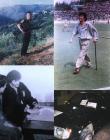
"[...] Il 25 settembre 1994, pochi giorni dopo l’inizio dello sciopero scolastico per l’introduzione del berbero nelle scuole, [Lounès Matoub] viene rapito da un commando di integralisti islamici. La cosa provoca una tale reazione compatta da parte di tutta la popolazione della Cabilia che i terroristi devono rilasciarlo dopo 15 giorni, il 10 ottobre. È la prima e unica volta che i terroristi islamici devono fare marcia indietro.
Ma la sua sorte è segnata. Condannato a morte dai terroristi per la sua aperta professione di laicismo, sceglie di restare nel suo paese e di non riparare all’estero dove sarebbe stato più protetto, e viene assassinato da un commando mascherato il 25 giugno 1998 a Oued Aissi, vicino al suo paese natale. Mancavano pochi giorni all’uscita del suo ultimo album, “Tabratt i lhukem” (“Lettera aperta”), un vero e proprio “testamento spirituale” in cui Matoub denuncia apertamente... (continua)
Ma la sua sorte è segnata. Condannato a morte dai terroristi per la sua aperta professione di laicismo, sceglie di restare nel suo paese e di non riparare all’estero dove sarebbe stato più protetto, e viene assassinato da un commando mascherato il 25 giugno 1998 a Oued Aissi, vicino al suo paese natale. Mancavano pochi giorni all’uscita del suo ultimo album, “Tabratt i lhukem” (“Lettera aperta”), un vero e proprio “testamento spirituale” in cui Matoub denuncia apertamente... (continua)
Alessandro 11/3/2010 - 12:50
Festa d'aprile
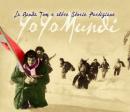
la versione degli yo yo mundi, insieme a tutto il disco Resistenza
Festa d'aprile
Festa d'aprile
matteo88 11/3/2010 - 11:21
Ninna nanna delle dodici mamme

Per me è uno dei più bei ricordi d'infanzia.
Un mondo bello che ormai non c'è più.
Un grazie alla mia Mamma che me l'ha sempre cantata.
Mi ha commosso rileggerla.
Un mondo bello che ormai non c'è più.
Un grazie alla mia Mamma che me l'ha sempre cantata.
Mi ha commosso rileggerla.
Alessandro Egidio Guido A. 10/3/2010 - 21:53
Matin cholérique

Matin cholérique
Matin cholérique – Marco Valdo M.I. – 2010
Cycle du Cahier ligné – 96
Matin cholérique est la nonante-sixième chanson du Cycle du Cahier ligné, constitué d'éléments tirés du Quaderno a Cancelli de Carlo Levi.
Encore une fois, mon ami Marco Valdo M.I., je trouve le titre de la canzone bien étrange. Mais il doit bien avoir à voir avec son contenu. Laisse-moi deviner... Comme il s'agit d'une canzone léviane, qu'elle fait partie du cycle du Cahier ligné, dès lors, il s'agit d'un moment de la méditation de notre ami le prisonnier-blessé. Ce moment est clairement dit : c'est le matin. Où je comprends moins bien, c'est cet adjectif qui s'y accole : cholérique. Il ne s'agit évidemment pas de la colère, mais du choléra, cette maladie souvent mortelle et en tous cas, porteuse de fièvres terribles.
Eh bien, Lucien l'âne mon ami, c'est exactement çà. Ton raisonnement est parfait.... (continua)
Matin cholérique – Marco Valdo M.I. – 2010
Cycle du Cahier ligné – 96
Matin cholérique est la nonante-sixième chanson du Cycle du Cahier ligné, constitué d'éléments tirés du Quaderno a Cancelli de Carlo Levi.
Encore une fois, mon ami Marco Valdo M.I., je trouve le titre de la canzone bien étrange. Mais il doit bien avoir à voir avec son contenu. Laisse-moi deviner... Comme il s'agit d'une canzone léviane, qu'elle fait partie du cycle du Cahier ligné, dès lors, il s'agit d'un moment de la méditation de notre ami le prisonnier-blessé. Ce moment est clairement dit : c'est le matin. Où je comprends moins bien, c'est cet adjectif qui s'y accole : cholérique. Il ne s'agit évidemment pas de la colère, mais du choléra, cette maladie souvent mortelle et en tous cas, porteuse de fièvres terribles.
Eh bien, Lucien l'âne mon ami, c'est exactement çà. Ton raisonnement est parfait.... (continua)
En un lieu maintenant familier
(continua)
(continua)
inviata da Marco Valdo M.I. 10/3/2010 - 17:25
27 de Noviembre

(J. Martí, S. González)
Cadáveres amados los que un día
(continua)
(continua)
inviata da DonQuijote82 9/3/2010 - 18:05
Which Side Are You On?
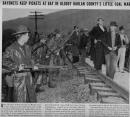
Apprendo dalle note che accompagnano il disco "Talking Union and Other Union Songs", con Pete Seeger, The Almanac Singers e The Song Swappers (Folkways Records, 1955) che la seguente strofa di questa canzone:
"My daddy was a miner,
And I'm a miner's son,
And I'll stick with the union
'Til every battle's won."
è da attribuirsi ad una modifica ad opera degli Almanac Singers.
La strofa originaria della Reece era la seguente:
"My daddy was a miner;
he's now in the air and sun
He'll be with you, fellow workers,
until this battle's won."
dove "in the air and sun" significa che il minatore non era in galleria ma disoccupato perchè "blacklisted" dai padroni a causa del suo attivismo sindacale...
"My daddy was a miner,
And I'm a miner's son,
And I'll stick with the union
'Til every battle's won."
è da attribuirsi ad una modifica ad opera degli Almanac Singers.
La strofa originaria della Reece era la seguente:
"My daddy was a miner;
he's now in the air and sun
He'll be with you, fellow workers,
until this battle's won."
dove "in the air and sun" significa che il minatore non era in galleria ma disoccupato perchè "blacklisted" dai padroni a causa del suo attivismo sindacale...
Alessandro 9/3/2010 - 14:04
General De Gaulle
anonimo
[1962]
Album “Songs of F.L.N. - Freedom Fighters of Algeria” (sung in arabic), Folkways Records.
Canzone satirica contro la Francia ed il suo presidente-generale, la cui linea di condotta rispetto alla questione algerina fu incomprensibile, fra strizzate d’occhio ai pied-noirs, negoziati segreti per una transizione pacifica verso l’indipendenza e feroci repressioni, salvo poi doversi arrendere all’evidenza della storia…
Album “Songs of F.L.N. - Freedom Fighters of Algeria” (sung in arabic), Folkways Records.
Canzone satirica contro la Francia ed il suo presidente-generale, la cui linea di condotta rispetto alla questione algerina fu incomprensibile, fra strizzate d’occhio ai pied-noirs, negoziati segreti per una transizione pacifica verso l’indipendenza e feroci repressioni, salvo poi doversi arrendere all’evidenza della storia…
A tree walks in the streets
(continua)
(continua)
inviata da Alessandro 9/3/2010 - 11:19
Percorsi:
La guerra d'Algeria
Cima Vallona
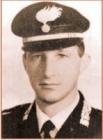
Grande FrncezGùccio. O interpretato dai Nomadi o dall'Equipe, o dalla Caselli il suo stile è sempre inconfondibile!
Saverio 9/3/2010 - 07:28
Story of Today
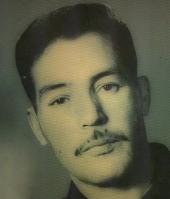
[1962]
Album “Songs of F.L.N. - Freedom Fighters of Algeria” (sung in arabic), Folkways Records.
Testo e musica di Farid Ali (1919-1981), poeta, musicista e combattente algerino, originario della Cabilia. Infatti il testo era originariamente in cabilo, uno dei dialetti berberi parlati in Algeria.
Album “Songs of F.L.N. - Freedom Fighters of Algeria” (sung in arabic), Folkways Records.
Testo e musica di Farid Ali (1919-1981), poeta, musicista e combattente algerino, originario della Cabilia. Infatti il testo era originariamente in cabilo, uno dei dialetti berberi parlati in Algeria.
Listen to this story,
(continua)
(continua)
inviata da Alessandro 8/3/2010 - 15:42
Percorsi:
La guerra d'Algeria
Hymn Of Underground
anonimo

[1962]
Album “Songs of F.L.N. - Freedom Fighters of Algeria” (sung in arabic), Folkways Records.
Testo e musica di autore anonimo.
Eseguita da un coro di combattenti dell’F.L.N., il Fronte di Liberazione algerino.
Cantata in arabo, ma sul libretto che accompagna il disco c’è solo la traduzione in inglese… ci accontentiamo?
“It is the most famous hymn between partisan troupe, which became so important that was used as opening theme by the programs broadcasted by the "voice of Algerian Republic".
[nota introduttiva al brano dal libretto che accompagna l’album]
Album “Songs of F.L.N. - Freedom Fighters of Algeria” (sung in arabic), Folkways Records.
Testo e musica di autore anonimo.
Eseguita da un coro di combattenti dell’F.L.N., il Fronte di Liberazione algerino.
Cantata in arabo, ma sul libretto che accompagna il disco c’è solo la traduzione in inglese… ci accontentiamo?
“It is the most famous hymn between partisan troupe, which became so important that was used as opening theme by the programs broadcasted by the "voice of Algerian Republic".
[nota introduttiva al brano dal libretto che accompagna l’album]
We swear on misfortunes and destruction
(continua)
(continua)
inviata da Alessandro 8/3/2010 - 14:45
Percorsi:
La guerra d'Algeria
Free the Land
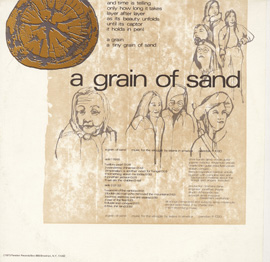
[1973]
Album “A Grain of Sand: Music for the Struggle by Asians in America”, Paredon Records.
Con Chris Kando Iijima, Joanne Nobuko Miyamoto e "Charlie" Chin.
Prodotto da Barbara Dane
“This song was written for a friend, sister Ibidun, and for a nation, the Republic of New Africa.
They say "free the land," as it captures a key concept in their struggle: land and sovereignty for blacks within the U.S. But we see this phrase as significant for all people who have worked and struggled in, and been oppressed by, this country. The land must be freed so that those who live and work on it will live in freedom. We will win! In the name of Malcolm, free the land…”
[nota introduttiva al brano dal libretto che accompagna l’album]
Diversamente da quanto può apparire dall’introduzione, questa canzone non è dedicata alla lotta dei neri sudafricani contro l’apartheid ma alla Republic of New Afrika... (continua)
Album “A Grain of Sand: Music for the Struggle by Asians in America”, Paredon Records.
Con Chris Kando Iijima, Joanne Nobuko Miyamoto e "Charlie" Chin.
Prodotto da Barbara Dane
“This song was written for a friend, sister Ibidun, and for a nation, the Republic of New Africa.
They say "free the land," as it captures a key concept in their struggle: land and sovereignty for blacks within the U.S. But we see this phrase as significant for all people who have worked and struggled in, and been oppressed by, this country. The land must be freed so that those who live and work on it will live in freedom. We will win! In the name of Malcolm, free the land…”
[nota introduttiva al brano dal libretto che accompagna l’album]
Diversamente da quanto può apparire dall’introduzione, questa canzone non è dedicata alla lotta dei neri sudafricani contro l’apartheid ma alla Republic of New Afrika... (continua)
Free the land
(continua)
(continua)
inviata da Alessandro 8/3/2010 - 13:57
Divide and Conquer

[1973]
Album “A Grain of Sand: Music for the Struggle by Asians in America”, Paredon Records.
Con Chris Kando Iijima, Joanne Nobuko Miyamoto e "Charlie" Chin.
Prodotto da Barbara Dane
“The tactic of dividing the people in order to conquer them is a tactic which capitalism has used in this country very effectively. It has not only kept different races apart, it has kept sexes, religions, ages, occupations, just about everything divided. People have been taught we must compete against one another, and that we threaten each others interests. It has even affected us personally in feelings of alienation from each other and ourselves, so that we are isolated and alone. We are not alone - our interests are the same as all people fighting against the common oppressor. Our struggle for unity is a critical struggle, and it is vital for victory.”
[nota introduttiva al brano dal libretto che accompagna l’album]
Album “A Grain of Sand: Music for the Struggle by Asians in America”, Paredon Records.
Con Chris Kando Iijima, Joanne Nobuko Miyamoto e "Charlie" Chin.
Prodotto da Barbara Dane
“The tactic of dividing the people in order to conquer them is a tactic which capitalism has used in this country very effectively. It has not only kept different races apart, it has kept sexes, religions, ages, occupations, just about everything divided. People have been taught we must compete against one another, and that we threaten each others interests. It has even affected us personally in feelings of alienation from each other and ourselves, so that we are isolated and alone. We are not alone - our interests are the same as all people fighting against the common oppressor. Our struggle for unity is a critical struggle, and it is vital for victory.”
[nota introduttiva al brano dal libretto che accompagna l’album]
Have you ever woken,
(continua)
(continua)
inviata da Alessandro 8/3/2010 - 13:35
War of the Flea

[1973]
Album “A Grain of Sand: Music for the Struggle by Asians in America”, Paredon Records.
Con Chris Kando Iijima, Joanne Nobuko Miyamoto e "Charlie" Chin.
Prodotto da Barbara Dane
Una canzone dedicata alla lotta di liberazione vietnamita.
“People's war has shown that small, oppressed nations can defeat the most highly technological military machine in the world - the U.S. This song is a celebration of that truth and to those who have shown us, in the belly of the monster, that truth.”
[nota introduttiva al brano dal libretto che accompagna l’album]
Album “A Grain of Sand: Music for the Struggle by Asians in America”, Paredon Records.
Con Chris Kando Iijima, Joanne Nobuko Miyamoto e "Charlie" Chin.
Prodotto da Barbara Dane
Una canzone dedicata alla lotta di liberazione vietnamita.
“People's war has shown that small, oppressed nations can defeat the most highly technological military machine in the world - the U.S. This song is a celebration of that truth and to those who have shown us, in the belly of the monster, that truth.”
[nota introduttiva al brano dal libretto che accompagna l’album]
Song of the night,
(continua)
(continua)
inviata da Alessandro 8/3/2010 - 13:27
Warriors Of The Rainbow
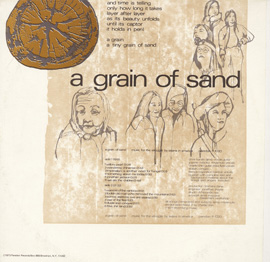
[1973]
Album “A Grain of Sand: Music for the Struggle by Asians in America”, Paredon Records.
Con Chris Kando Iijima, Joanne Nobuko Miyamoto e "Charlie" Chin.
Prodotto da Barbara Dane
“In Chicago in the summer of 1970, we met with some Indian brothers and sisters who were squatting for decent housing for their people. They told us of an old Indian legend (we don‘t know which nation it came from). The legend said that for 5.000 years the world would be ruled by evil followed by 5.000 years of good, that change would be brought about with the coming together of warriors of all colors of the rainbow, and that the time for that change is now…”
[nota introduttiva al brano dal libretto che accompagna l’album]
Quella dei “guerrieri dell’arcobaleno” è una profezia dei nativi americani appartenenti alla nazione Hopi, Arizona, ma leggende simili sono riscontrabili anche tra Cree e Cherokee. Il... (continua)
Album “A Grain of Sand: Music for the Struggle by Asians in America”, Paredon Records.
Con Chris Kando Iijima, Joanne Nobuko Miyamoto e "Charlie" Chin.
Prodotto da Barbara Dane
“In Chicago in the summer of 1970, we met with some Indian brothers and sisters who were squatting for decent housing for their people. They told us of an old Indian legend (we don‘t know which nation it came from). The legend said that for 5.000 years the world would be ruled by evil followed by 5.000 years of good, that change would be brought about with the coming together of warriors of all colors of the rainbow, and that the time for that change is now…”
[nota introduttiva al brano dal libretto che accompagna l’album]
Quella dei “guerrieri dell’arcobaleno” è una profezia dei nativi americani appartenenti alla nazione Hopi, Arizona, ma leggende simili sono riscontrabili anche tra Cree e Cherokee. Il... (continua)
Rain storm, winds blow
(continua)
(continua)
inviata da Alessandro 8/3/2010 - 13:17
We Are The Children

[1973]
Album “A Grain of Sand: Music for the Struggle by Asians in America”, Paredon Records.
Con Chris Kando Iijima, Joanne Nobuko Miyamoto e "Charlie" Chin.
Prodotto da Barbara Dane
“This is another another first songs we wrote. It only touched on our people's plight and experiences in this country. We've heard that sisters and brothers in Hawaii and other places have added verses to it. We say right on -- it is your song.”
[nota introduttiva al brano dal libretto che accompagna l’album]
Album “A Grain of Sand: Music for the Struggle by Asians in America”, Paredon Records.
Con Chris Kando Iijima, Joanne Nobuko Miyamoto e "Charlie" Chin.
Prodotto da Barbara Dane
“This is another another first songs we wrote. It only touched on our people's plight and experiences in this country. We've heard that sisters and brothers in Hawaii and other places have added verses to it. We say right on -- it is your song.”
[nota introduttiva al brano dal libretto che accompagna l’album]
We are the children of the migrant worker
(continua)
(continua)
inviata da Alessandro 8/3/2010 - 12:51
Il mio onore
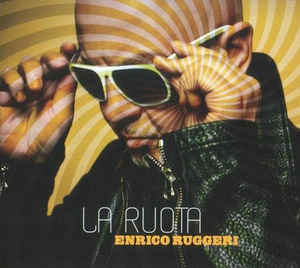
dall'album "La Ruota", 2010
Finalista Voci per la libertà 2011
(DonQuijote82)
(DonQuijote82)
Lungo strade di confine
(continua)
(continua)
inviata da Silvia 8/3/2010 - 12:24
Jonathan Jackson

[1973]
Album “A Grain of Sand: Music for the Struggle by Asians in America”, Paredon Records.
Con Chris Kando Iijima, Joanne Nobuko Miyamoto e "Charlie" Chin.
Prodotto da Barbara Dane
“When we hear about revolutionary heroes like Jonathan Jackson (who was shot at San Marin Courthouse trying to free his brother George), we tend to put them into some superhuman category. What we want to say is that Jonathan Jackson, like Nguyen Van Trol, like Che Guevara, was first a human being like us; a human being with feelings, joys, and fears, and that we all have that revolutionary potential. Jonathan Jackson is not separate from us, but part of us and what he stood for, is us.”
[nota introduttiva al brano dal libretto che accompagna l’album]
Sui fratelli Jackson si vedano anche George Jackson e Uncle George.
Album “A Grain of Sand: Music for the Struggle by Asians in America”, Paredon Records.
Con Chris Kando Iijima, Joanne Nobuko Miyamoto e "Charlie" Chin.
Prodotto da Barbara Dane
“When we hear about revolutionary heroes like Jonathan Jackson (who was shot at San Marin Courthouse trying to free his brother George), we tend to put them into some superhuman category. What we want to say is that Jonathan Jackson, like Nguyen Van Trol, like Che Guevara, was first a human being like us; a human being with feelings, joys, and fears, and that we all have that revolutionary potential. Jonathan Jackson is not separate from us, but part of us and what he stood for, is us.”
[nota introduttiva al brano dal libretto che accompagna l’album]
Sui fratelli Jackson si vedano anche George Jackson e Uncle George.
Never met a man who said
(continua)
(continua)
inviata da Alessandro 8/3/2010 - 12:09
Imperialism Is Another Word For Hunger

[1973]
Album “A Grain of Sand: Music for the Struggle by Asians in America”, Paredon Records.
Con Chris Kando Iijima, Joanne Nobuko Miyamoto e "Charlie" Chin.
Prodotto da Barbara Dane
“As the struggle against U.S. imperialism around the world intensifies, our task here is to give the people in America a better understanding and fuller awareness of what U.S. Imperialism is, what it does, and what we must do to combat it. Our purpose in writing “imperialism" was two-fold; One, to help break down the "mystique" of words like imperialism which the governments propaganda has injected into the minds of the people -- to equate imperialism with everyday concepts so people feel more at ease with hearing it and talking about it; two, to help us break down our own dependence on rhetoric so that we may better be able to communicate with those we are trying to serve.
Obviously, that is a tall order... (continua)
Album “A Grain of Sand: Music for the Struggle by Asians in America”, Paredon Records.
Con Chris Kando Iijima, Joanne Nobuko Miyamoto e "Charlie" Chin.
Prodotto da Barbara Dane
“As the struggle against U.S. imperialism around the world intensifies, our task here is to give the people in America a better understanding and fuller awareness of what U.S. Imperialism is, what it does, and what we must do to combat it. Our purpose in writing “imperialism" was two-fold; One, to help break down the "mystique" of words like imperialism which the governments propaganda has injected into the minds of the people -- to equate imperialism with everyday concepts so people feel more at ease with hearing it and talking about it; two, to help us break down our own dependence on rhetoric so that we may better be able to communicate with those we are trying to serve.
Obviously, that is a tall order... (continua)
It's just another word for hunger,
(continua)
(continua)
inviata da Alessandro 8/3/2010 - 11:49
×
![]()

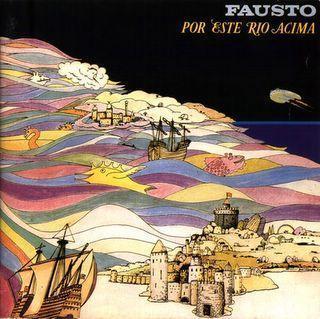

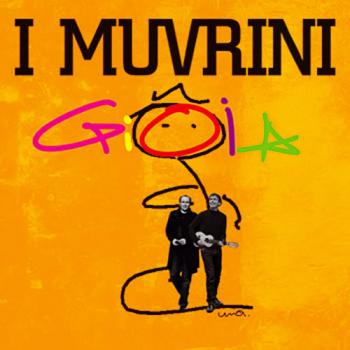
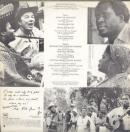

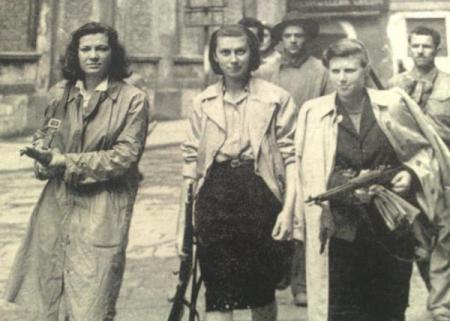


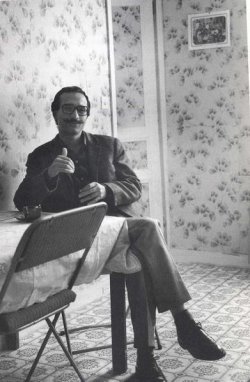
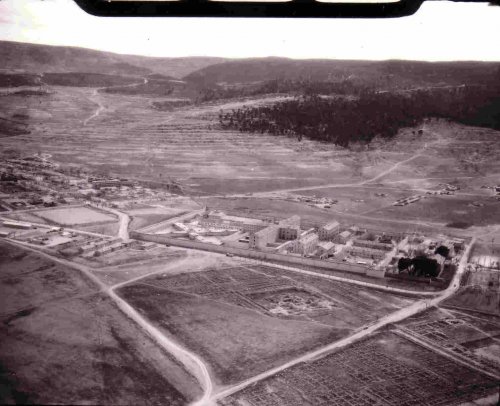
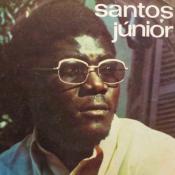


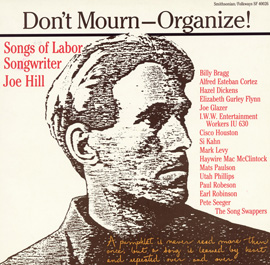
Letras e música de Fausto Bordalo Gomes
Álbum: Por este rio acima (Disco 1)
"Por Este Rio Acima" é o sexto álbum de Fausto, editado em 1982. É o primeiro disco da trilogia inacabada "Lusitana Diáspora", que inclui ainda o álbum Crónicas da Terra Ardente (1994). Baseia-se nas viagens de Fernão Mendes Pinto (1512-1583) aventureiro e explorador português, relatadas na sua Peregrinação.
Diário da viagem, Fernão Mendes Pinto:
"De Diu embarquei para o estreito de Meca, daqui fomos a Maçuá e daí, por terra, ao Reino do Preste João. Passei ao Reino dos Batas e de fugida pelo Reino de Quedá como adiante darei parte. Em Patane conheci António de Faria, capitão a quem servi na venda da mercadoria. Fomos atacados e roubados pelo perro do Coja Acém, temido pirata depois que Heitor da Silveira lhe matara seu pai e dois irmãos. Por isso, Coja Acém havia prometido a Mafamede matar todos da geração... (continua)